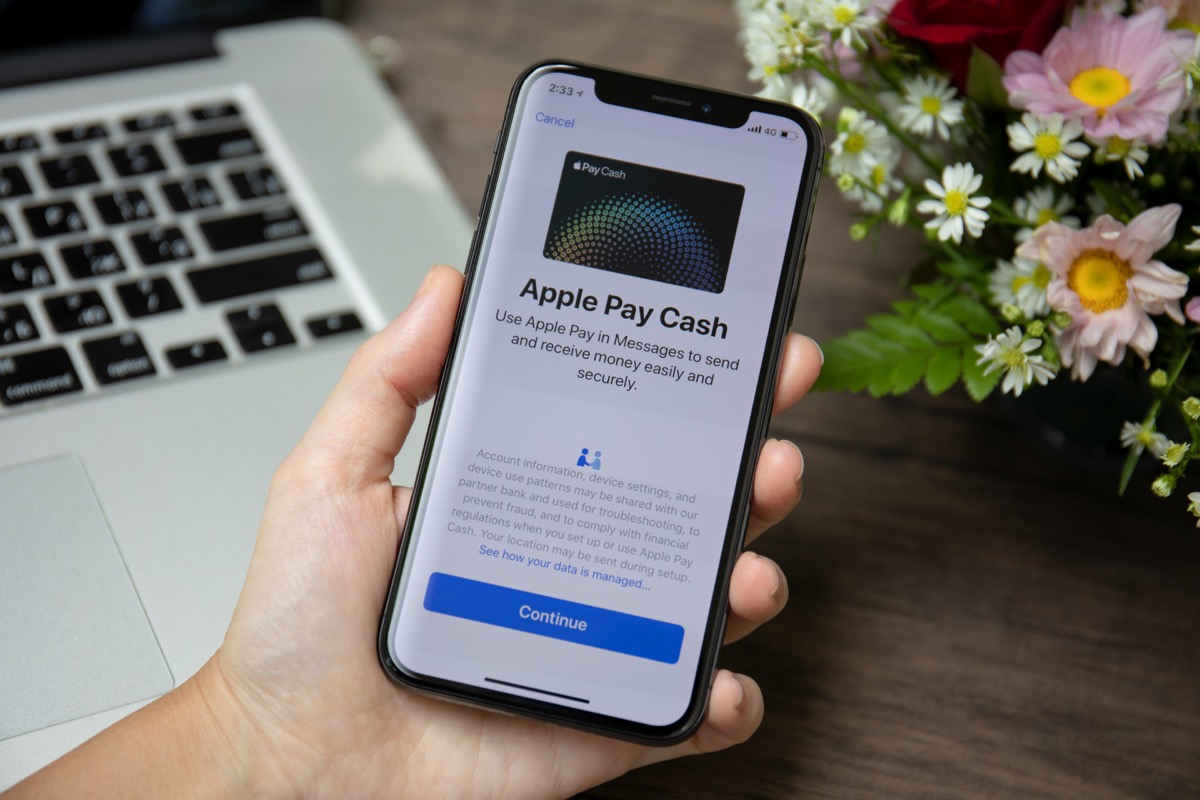If You Get This Message From Apple, Don’t Click on It

If you’ve ever forgotten your login credentials and entered the wrong password one too many times, you know how frustrating it can be to discover you’re locked out of one of your accounts. Of course, you’re eager to get back in as quickly as possible, but in some cases, doing so may mean you’re putting your personal information at risk. That’s the issue with a new scam targeting Apple customers that could put your sensitive financial information in the wrong hands. Read on to discover how to spot the scam and what to do if you think you’ve been affected.
RELATED: If You Get This Email From Amazon, Delete It Immediately.
If you receive a text claiming your Apple Pay account is suspended, don’t click on it.

A new scam is targeting Apple customers, according to Lovemoney. The grift begins when you receive a text claiming that your Apple Pay account has been suspended. The text contains a link that directs you to what appears to be a legitimate Apple website.
Once there, you’re asked to provide login information, including your username and password, to confirm your account.
For the latest tech news and alerts delivered straight to your inbox, sign up for our daily newsletter.
You may also be asked to provide details about your financial information.

Once you’ve provided your username and password, you will likely be asked to provide additional personal details. These often include your birth date, address, and full name—and in many cases, bank account or credit card information. If you provide these details on the spoofed site, scammers may be able to access your financial data and steal your money.
In some cases, scammers will ask you to download software to your phone or computer to remedy the problem—but you should never do so. “If installed, unknown or unwanted software may become intrusive and annoying and could even damage your Mac and steal your data,” Apple states on its official support site.
Certain details can tip you off to the scam.

If you receive a message from Apple about any of your accounts, there are a few things to look out for to determine whether it’s a legitimate form of communication from the company.
Apple recommends checking the phone number or email address the message was sent from or checking the address of the link they’ve included, to see whether or not it looks similar to communications you’ve received from Apple in the past. The company also notes that unsolicited messages claiming to be from Apple that contain attachments are often the work of scammers.
If you think you’ve being targeted, report the scam to Apple and officials immediately.

If you believe you’ve received a fraudulent message from someone claiming to be from Apple, there are several ways to protect yourself.
If the message came via text on your Apple device, click “Report Junk” under the message in iMessage. If the questionable message comes through your email, Apple recommends forwarding it to [email protected]. You can also report phishing scams to the Federal Trade Commission (FTC) and your local law enforcement authority. To contact Apple to confirm that your account hasn’t actually been suspended, use information found on the contact page of the company’s website.
If you think your account has already been compromised, Apple recommends changing your Apple and iCloud passwords immediately.
RELATED: If You’re an Android User, Don’t Click on This Text Message.